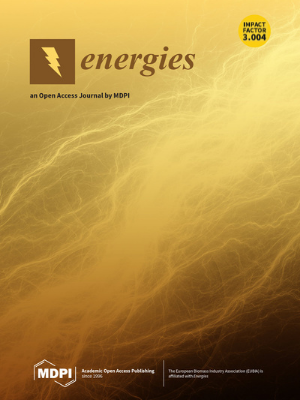Flue Gas Recirculation System for Biomass Heating Boilers—Research and Technical Applications for Reductions in Nitrogen Oxides (NOx) Emissions
IF 3.2
4区 工程技术
Q3 ENERGY & FUELS
引用次数: 0
Abstract
The paper discusses the results of investigations of the change in thermal and emission-related parameters of a heating boiler fueled with biomass after a modification with a proprietary flue gas recirculation system made for this type of equipment. The results provide insight into the combustion process with a multistage flue gas recirculation that materially affected the boiler operation: a reduction in the mass concentration of nitrogen oxides (NOx) by reducing the combustion temperature. The authors also observed a reduction in the emission of particulate matters (PM) and carbon monoxide (CO). For the investigations, the authors used a heating boiler fitted with an automatic fuel feed (timber pellets) and a proprietary patented flue gas recirculation system (Polish patent Pat. 243395) for low power solid fuel heating boilers. Aside from the measurement of the mass concentration of the emitted pollutants, the research focused on the measurements of the temperature inside the combustion chamber, the temperature of the flue gas and the level of oxygen in the flue gas. The aim of the research was to confirm the validity of using the flue gas recirculation technique to reduce emissions of harmful substances from biomass heating boilers, as a technique not previously used for this group of devices. Moreover, the aim of the research was to test an original engineering solution, in the form of a flue gas distribution valve, and investigate its effect on reducing NOx emissions and improving other thermal and emission parameters of the boiler. The obtained research results confirm the validity of the chosen actions and provide a positive premise for the practical use of this technology in solid fuel heating boilers.生物质供热锅炉烟气再循环系统--减少氮氧化物(NOx)排放的研究与技术应用
本文讨论了以生物质为燃料的供热锅炉在改装了专为此类设备设计的烟气再循环系统后,其热能和排放相关参数变化的调查结果。研究结果深入分析了多级烟气再循环系统的燃烧过程,该系统对锅炉运行产生了实质性影响:通过降低燃烧温度,减少了氮氧化物(NOx)的质量浓度。作者还观察到颗粒物(PM)和一氧化碳(CO)的排放量有所减少。在调查中,作者使用了一台配备自动燃料进料(木材颗粒)和专有专利烟气再循环系统(波兰专利第 243395 号)的供暖锅炉,该系统适用于低功率固体燃料供暖锅炉。除了测量排放污染物的质量浓度外,研究还侧重于测量燃烧室内的温度、烟气温度和烟气中的含氧量。研究的目的是确认使用烟气再循环技术减少生物质供热锅炉有害物质排放的有效性,因为这种技术以前从未用于这类设备。此外,研究的目的还在于测试一种以烟气分配阀为形式的原创工程解决方案,并调查其在减少氮氧化物排放和改善锅炉其他热能和排放参数方面的效果。研究结果证实了所选措施的有效性,并为在固体燃料加热锅炉中实际使用该技术提供了积极的前提。
本文章由计算机程序翻译,如有差异,请以英文原文为准。
求助全文
约1分钟内获得全文
求助全文
来源期刊

Energies
ENERGY & FUELS-
CiteScore
6.20
自引率
21.90%
发文量
8045
审稿时长
1.9 months
期刊介绍:
Energies (ISSN 1996-1073) is an open access journal of related scientific research, technology development and policy and management studies. It publishes reviews, regular research papers, and communications. Our aim is to encourage scientists to publish their experimental and theoretical results in as much detail as possible. There is no restriction on the length of the papers. The full experimental details must be provided so that the results can be reproduced.
 求助内容:
求助内容: 应助结果提醒方式:
应助结果提醒方式:


